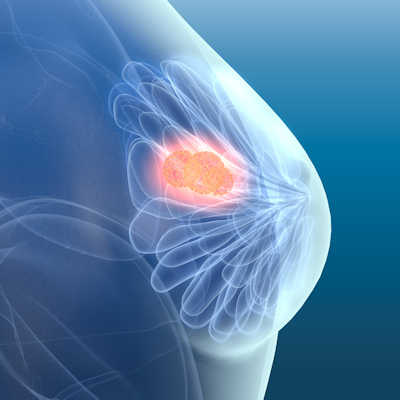November 30, 2022 -- Boston University researchers have demonstrated that control of a certain cellular pathway can prevent the development of human triple-negative breast cancer. Their findings, published November 28 in the journal Nature Communications, demonstrate that understanding the cellular mechanisms leading to breast cancer development may help identify new therapeutic options.
Triple-negative breast cancers, also known as basal-like cancers, are an aggressive breast cancer subtype with poor treatment options for patients. Studies indicate that basal-like cancers can arise from luminal epithelial cells, which line the breast duct.
The researchers found that when a cellular pathway known as the Hippo pathway was dysregulated or impaired, luminal epithelial cells in the mammary gland rapidly transitioned to a basal-like state and developed into triple-negative carcinomas.
Using genetic mouse models and ex vivo primary organoid cultures, the researchers conditionally deleted two components of the Hippo pathway -- the Lats1 and Lats2 genes -- in the luminal epithelium of the mammary glands. When these genes were deleted, the models rapidly developed basal-like mammary carcinomas resembling human basal-like breast cancers. Carcinoma development depended upon the activity of two Hippo pathway effector proteins -- YAP and TAZ. Deletion of these two proteins reversed carcinoma development in the models.
The researchers contend that the gene expression signature identified from the Lats1/2-deleted tumors could be used to identify aggressive features associated with triple-negative breast cancers. They hope their findings will facilitate improved treatment and outcomes for these difficult-to-treat breast cancers.
"A better understanding of the cellular mechanisms leading to the development of these cancers is essential to identifying new therapeutic options," corresponding author Bob Varelas, PhD, associate professor of biochemistry at Boston University, said in a statement.
Copyright © 2022 scienceboard.net









